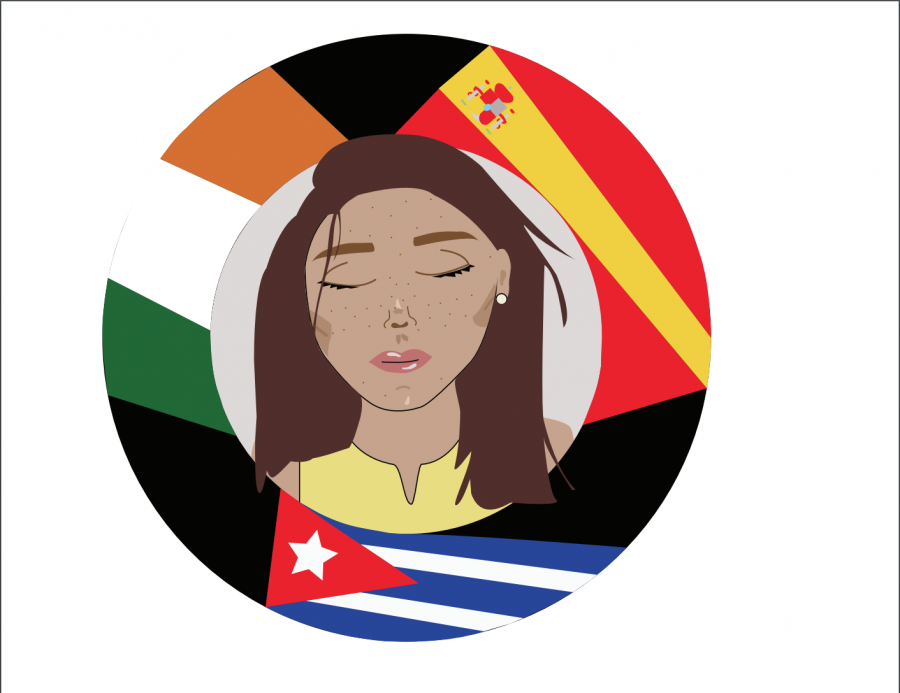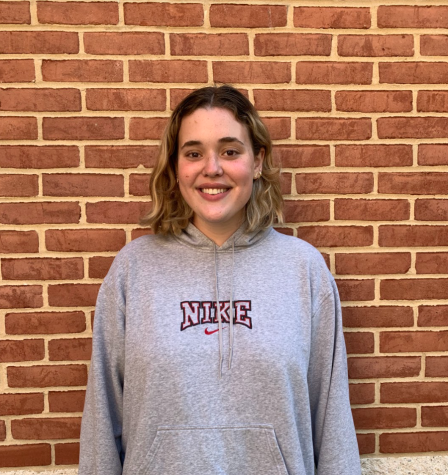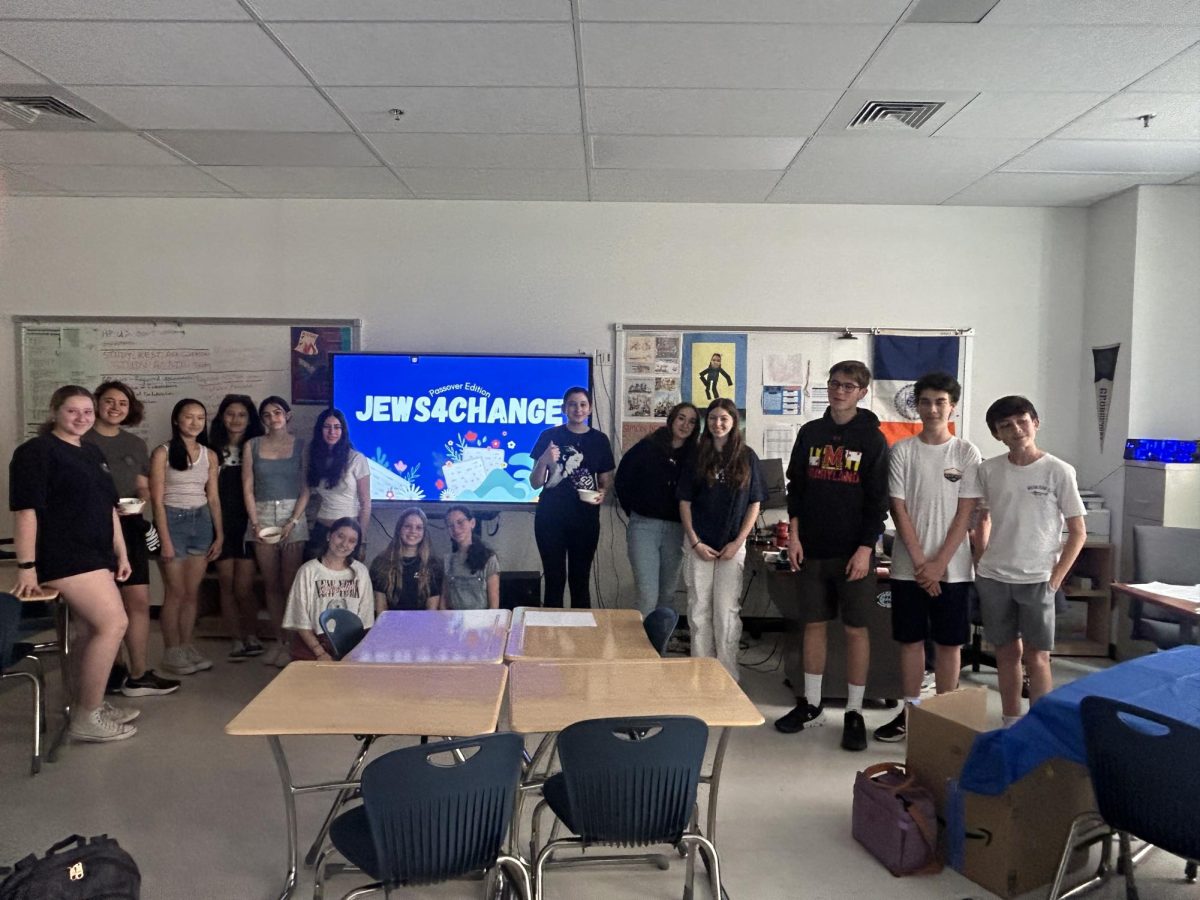I’m not just checking a box, I’m acknowledging my heritage
“I often feel fraudulent identifying as Hispanic, like I’m somehow appropriating a culture, even though it’s my heritage to claim.”
Identity isn’t just a box to check on college applications. It’s a connection to family and culture
September 18, 2020
When brought up in conversation, my ethnic background usually gets two different reactions: “Wait, you’re Hispanic? But you look white,” or “You’re so lucky; it’ll be so easy for you to get into college.”
For most of my life, I considered myself Spanish and Irish; my paternal grandmother’s family is from Spain and my mother’s family is Irish. I have Cuban blood too — my paternal grandfather’s family is ethnically Cuban — but I never realized I could consider myself Cuban until the middle of seventh grade. I was watching One Day at a Time, a sitcom on Netflix about a Cuban family, when a character in the show began to question whether she could identify as a person of color despite her pale complexion. I instantly resonated with her; I’m Cuban, yet I’m tall, pale, brunette and freckled. For the first time in my life, deciding whether it was appropriate for me to identify with the multigenerational Cuban side of my grandpa’s family left me feeling conflicted.
At first, I wasn’t comfortable embracing an entirely new identity. I didn’t speak fluent Spanish, had never faced discrimination because of my ethnicity and none of my friends shared my ethnic background. I didn’t feel validated acknowledging my Hispanic identity. My father, grandparents and other members of my extended family had faced discrimination for being Cuban, and I didn’t think I had the right to adopt what I liked about a culture while conveniently avoiding discrimination because of my complexion and dialect.
My grandparents are Cuban immigrants. As newlyweds in their early 20s who had recently lost their wealth due to Fidel Castro’s regime, they fled to the United States in 1960 at the end of the Cuban Revolution, hardly speaking any English. My grandpa studied comparative law at Southern Methodist University, and my grandma — after previously attending university — stayed home with their three children, my dad being the youngest.
Growing up in the predominantly white areas of Pennsylvania, Maryland and Connecticut, my dad suppressed his culture because of the shame and ridicule he received from his classmates — they would call him “dirty spick.” He decided to go by Andy instead of Andres, refused to select “Hispanic/Latino” on his college applications and never learned to speak Spanish fluently.
For most of my childhood, it was hard for me to uncover my Cuban heritage. Although I grew up with my grandparents living close by, America’s complicated relationship with Cuba disrupted my understanding of my culture and, from a young age, made me feel uncomfortable acknowledging and embracing my identity. Even now, after over 60 years of conflict and Cuba no longer labeled by the U.S. government as a terrorist threat, travel and business with Cuba is still on the rocks.
My mom’s family originates from Ireland, so her understanding of Hispanic culture is minimal. On top of that, I’ve grown up in a predominantly white area, just like my dad. I continued to be estranged from my heritage because of the lack of prominence it holds in my daily life. I rarely have conversations, eat meals or seek friendships with Hispanic culture in mind. When people find out that I’m half Cuban, I’ll occasionally get a Fidel Castro or communism joke directed at me; if I never said anything, though, people wouldn’t know I’m not only Irish.
I am Cuban, but I also identify as white and benefit from white privilege. Because I don’t have traditional Hispanic features, I often feel fraudulent identifying as Hispanic, like I’m somehow appropriating a culture, even though it’s my heritage to claim. Even so, it’s important to me to be a voice for less privileged people with similar ethnic backgrounds as me and continue to fight for equality within the different Hispanic and Latinx groups living in the U.S. by shedding light on issues like colorism and the wage gap.
I am proud of my grandparents, my dad and the rest of my extended family for making a continuous effort to acknowledge inequalities within the Latinx communities, and inform me about my culture, its importance and its legacy. For the past several years, my curiosity and appreciation for my Cuban heritage has begun to outweigh my desire to fully assimilate with white culture. I want my future children to have a strong grasp of their heritage, and that starts with my active pursuit of it.
I love hearing about Cuba and how beautiful it was before the Revolution. I love homemade croquetas (a fried ham and cheese appetizer) and arroz con pollo (rice and chicken) at family dinners. I’m proud of my heritage and will continue to identify with my Cuban side. When I check Hispanic on an application, I’m not doing so to compensate for any inadequacies; I’m embracing my nuanced and diverse cultural perspective.











Ali • Sep 22, 2020 at 12:56 am
You put it very well, Cate. As someone who also “passes” despite being half-Mexican, it’s nice to know someone else understands what it’s like. Thank you!